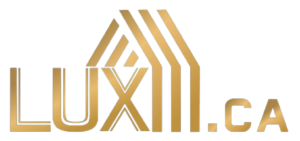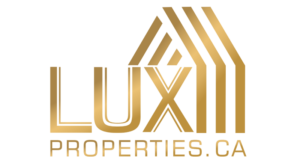Buying Houses in Etobicoke Toronto
Buying Houses in Etobicoke Toronto is a great investment. This area offers a mix of urban convenience and suburban charm. Etobicoke has parks, schools, and shopping centers. Families and professionals find it an ideal place to live. Public transportation in this street of city is accessible. Highways and TTC services make commuting easy. Housing options vary. Buyers can choose from condos, townhouses, and detached homes.
Buying Houses in Etobicoke Toronto ensures a high quality of life. The area is peaceful yet close to downtown. Home prices depend on location and size. Waterfront properties are highly desirable. Parks, trails, and recreational facilities make outdoor activities enjoyable. Etobicoke is a growing community. New developments attract many homebuyers. Buying Houses in Etobicoke Toronto offers long-term value. It’s a smart choice for families and investors.
Buying Houses in Etobicoke Toronto: Available Types And Price
Etobicoke is a popular area in Toronto for home buyers. It offers a mix of urban and suburban lifestyles. The real estate market in Etobicoke includes different types of houses. Prices vary based on location and property type. Homebuyers should understand the market trends before purchasing. This helps in making informed decisions. This article explains the types of houses available in Etobicoke. It also details their prices and factors affecting costs.
Detached Houses
Detached houses are the most spacious homes in Etobicoke. They offer privacy and large outdoor spaces. These houses come in various styles, including bungalows and two-story homes. Some have modern designs, while others have classic architecture. The price of a detached house depends on size and location. Newer houses are more expensive than older ones.
In prime neighborhoods, detached houses can cost over $2 million. In other areas, they range from $1.2 million to $1.8 million. The cost of maintenance is higher for detached homes. Homeowners need to budget for repairs and landscaping. These houses are ideal for families who need more space. They provide a comfortable living environment.
Semi-Detached Houses
Semi-detached houses share one common wall with a neighboring house. They offer a balance between privacy and affordability. These houses are smaller than detached homes but still provide enough space for families. They usually come with backyards and driveways. Prices of semi-detached homes in Etobicoke range from $900,000 to $1.5 million. Location plays a key role in pricing.
Older semi-detached homes may require renovations. Buyers should consider renovation costs when purchasing these houses. Many buyers prefer semi-detached houses due to their affordability. They are a good investment for long-term homeownership. Compared to detached homes, they require less maintenance. This makes them a practical choice for many buyers.
Townhouses
Townhouses are a popular choice for first-time buyers. They offer affordability and community living. These houses are built in rows, sharing walls with neighboring units. They come with multiple floors and small yards. The price of townhouses in Etobicoke varies. On average, they range from $700,000 to $1.2 million.
Newly built townhouses are more expensive. They feature modern designs and updated amenities. Older townhouses may need renovations. Buyers should factor in additional costs for repairs and upgrades. Townhouses are ideal for families and young professionals. They provide a balance of affordability and comfort.
Condominiums
Condominiums, or condos, are the most affordable housing option in Etobicoke. They are ideal for singles and small families. Condos come with shared amenities like gyms, pools, and security services. They provide a modern and convenient lifestyle. Prices for condos in Etobicoke range from $500,000 to $1 million. Luxury condos can cost even more.
Condo fees are an additional expense. These fees cover maintenance and shared facilities. Many investors prefer condos due to their rental potential. They generate good returns over time. Condos require less maintenance. This makes them a hassle-free choice for many buyers.
Luxury Homes
Etobicoke has a variety of luxury homes. These include waterfront properties and custom-built mansions. Luxury homes offer high-end features like smart technology and designer interiors. They provide top-tier living experiences. The price of luxury homes starts at $3 million. Some properties exceed $10 million.
These homes are located in exclusive neighborhoods. They offer privacy and stunning views. Luxury homes require high maintenance. Owners should consider additional costs for upkeep. Only high-net-worth individuals can afford these properties. They are a symbol of prestige and comfort.
Factors Affecting House Prices in Etobicoke
Several factors influence home prices in Etobicoke. Location is the most significant factor. Houses near transit hubs and commercial centers cost more. Proximity to schools and parks also impacts prices. Market demand affects pricing trends. When demand is high, prices rise quickly.
The condition of the house matters. Renovated homes cost more than older, outdated ones. Government regulations and interest rates influence affordability. Buyers should monitor market conditions before making a decision. Understanding these factors helps buyers find the best deal. It ensures a smart investment in the long run.
Popular Neighborhoods in Etobicoke
Etobicoke has several attractive neighborhoods. Each offers unique benefits and housing options. The Kingsway is a prestigious area. It has upscale homes and excellent schools. Mimico is popular for waterfront living. It features condos with stunning lake views. Rexdale is more affordable. It has a mix of detached homes and townhouses.
Long Branch is known for its peaceful environment. It attracts families and retirees. Choosing the right neighborhood depends on lifestyle and budget. Each area has its own charm. Researching different neighborhoods helps buyers make the best choice. Location plays a crucial role in home value.
Cost of Living and Additional Expenses
Buying a house comes with extra costs. These expenses should be considered before purchasing. Property taxes in Etobicoke vary by area. They add to the overall cost of homeownership. Utilities like water, electricity, and heating are ongoing expenses. Monthly costs depend on house size and usage. Home insurance is essential. It protects against damages and liabilities.
Maintenance costs differ based on property type. Detached homes require more upkeep than condos. Legal fees and land transfer taxes are additional expenses. Buyers must budget for these costs. Planning for these expenses ensures financial stability. It helps buyers avoid unexpected financial burdens.
Investment Potential in Etobicoke
Etobicoke is a strong real estate investment location. Property values have consistently increased over the years. Rental demand is high. Many investors buy homes for rental income. New developments attract buyers and investors. The growing infrastructure boosts property value.
Short-term rentals are also profitable. Tourists and business travelers seek temporary accommodations. Buying a home in Etobicoke is a long-term investment. Property appreciation ensures financial growth. Investors should analyze the market. Choosing the right property guarantees high returns.
Etobicoke offers diverse housing options. Buyers can choose from detached homes, condos, and luxury properties. Understanding market trends is essential. It helps buyers make informed decisions. Factors like location, amenities, and property condition affect prices. Buyers should research before purchasing.
Etobicoke remains a prime real estate destination. It offers value, convenience, and investment potential. Making a well-informed purchase ensures financial security. A smart investment leads to a comfortable lifestyle.
The Legal Process of Buying Houses in Etobicoke Toronto
Buying a house in Etobicoke involves legal steps. Understanding the process helps avoid complications. Legal procedures ensure a smooth transaction. Buyers must follow regulations to secure ownership. This guide explains each legal step. It covers contracts, inspections, and closing procedures.
A real estate lawyer is essential. They handle legal documents and protect buyer rights. Following the correct legal process prevents disputes. It ensures a safe and successful purchase.
Hiring a Real Estate Lawyer
A real estate lawyer is crucial. They handle legal paperwork and transactions. Lawyers review contracts. They ensure terms are fair and protect buyer interests. They verify property ownership. This prevents fraud and legal issues.Lawyers explain legal obligations. Buyers understand their rights before signing. They manage title transfers. Proper documentation ensures legal ownership. A good lawyer prevents legal complications. Their guidance ensures a smooth process.
Mortgage Pre-Approval
Getting mortgage pre-approval is important. It determines the budget for buying. Lenders assess financial history. They check income, debts, and credit scores. A pre-approval letter strengthens offers. Sellers prefer financially qualified buyers.Pre-approval helps avoid delays. It speeds up the purchase process. Buyers compare mortgage rates. Choosing the best lender saves money. A strong credit score gets better rates. Managing finances improves loan approval chances.
Making an Offer
An offer is a legal document. It outlines the purchase terms. Buyers specify price, conditions, and closing dates. Sellers review and negotiate. Conditional offers protect buyers. They depend on financing and home inspections.Once accepted, the offer becomes binding. Legal obligations begin immediately. Deposit payments secure the deal. It shows buyer commitment. A lawyer reviews the offer before submission. Legal advice prevents unfavorable terms.
Home Inspection
A home inspection is essential. It identifies property issues. Inspectors check the structure, plumbing, and electrical systems. Hidden problems affect home value. Serious issues can change the offer. Buyers may renegotiate or withdraw.Sellers may fix defects before closing. This ensures property quality. Skipping an inspection is risky. Undetected problems lead to future expenses. A lawyer includes inspection clauses. This protects buyers from unforeseen costs.
Title Search and Insurance
A title search confirms legal ownership. It prevents disputes over property rights. Lawyers check property history. They verify no outstanding debts or claims. Title insurance protects buyers. It covers legal fees in case of ownership disputes.Unresolved liens can delay closing. Lawyers ensure clear titles before purchase. Title fraud is a risk. Insurance prevents financial losses. This step secures a buyer’s legal rights. It guarantees undisputed ownership.
Finalizing the Mortgage
After the offer is accepted, the mortgage process begins. Lenders finalize loan details. Buyers submit required documents. This includes income statements and credit reports. Lenders confirm property value. They ensure it matches the loan amount.Loan approval takes time. Buyers should stay in contact with lenders. Final mortgage agreements are legally binding. Reading terms carefully is important. A lawyer reviews the contract. They confirm fair and legal loan conditions.
Signing the Agreement
The purchase agreement is legally binding. It finalizes the transaction. Buyers sign documents in the lawyer’s office. Sellers also complete legal paperwork. Agreements outline payment schedules. They include all financial obligations.Once signed, the deal is official. Ownership transfer is prepared. Breaking a contract has legal consequences. Buyers must fulfill all terms. Lawyers ensure documents comply with regulations. Their oversight prevents legal issues.
Closing Costs and Final Payments
Closing costs include various fees. Buyers must prepare for additional expenses. Legal fees cover lawyer services. They handle paperwork and transactions.Land transfer tax applies to all purchases. Costs vary by property price.
Property insurance is required. It protects against damages and losses. Adjustments cover unpaid utility bills. Buyers settle outstanding amounts before moving in. Having funds ready ensures smooth closing. Delays may lead to penalties.
Property Transfer and Registration
The final step is property transfer. Legal ownership is recorded. Lawyers register the new owner’s name. This completes the transaction. The land registry office updates records. Official documents confirm ownership.Property keys are handed over. Buyers officially take possession. A final review ensures all payments are cleared. Legal confirmation finalizes the deal. After registration, buyers can move in. Their new home is legally secured.
Common Legal Issues
Some buyers face legal issues. Knowing risks helps avoid problems. Title disputes can arise. Unclear ownership records cause delays. Contract breaches lead to legal action. Failing to meet terms results in penalties.Zoning regulations affect renovations. Buyers should check local building laws. Fraudulent listings exist. Legal checks confirm legitimate sales. A good lawyer prevents issues. Proper legal guidance ensures smooth transactions.
Buying a house in Etobicoke involves legal steps. Following them prevents complications. Hiring a lawyer is crucial. Their role ensures legal protection. Understanding mortgage terms is important. Buyers must review agreements carefully. Proper documentation finalizes ownership. A legal transfer secures the property. A smooth process ensures a successful purchase. Buyers enjoy their new homes without legal worries.


